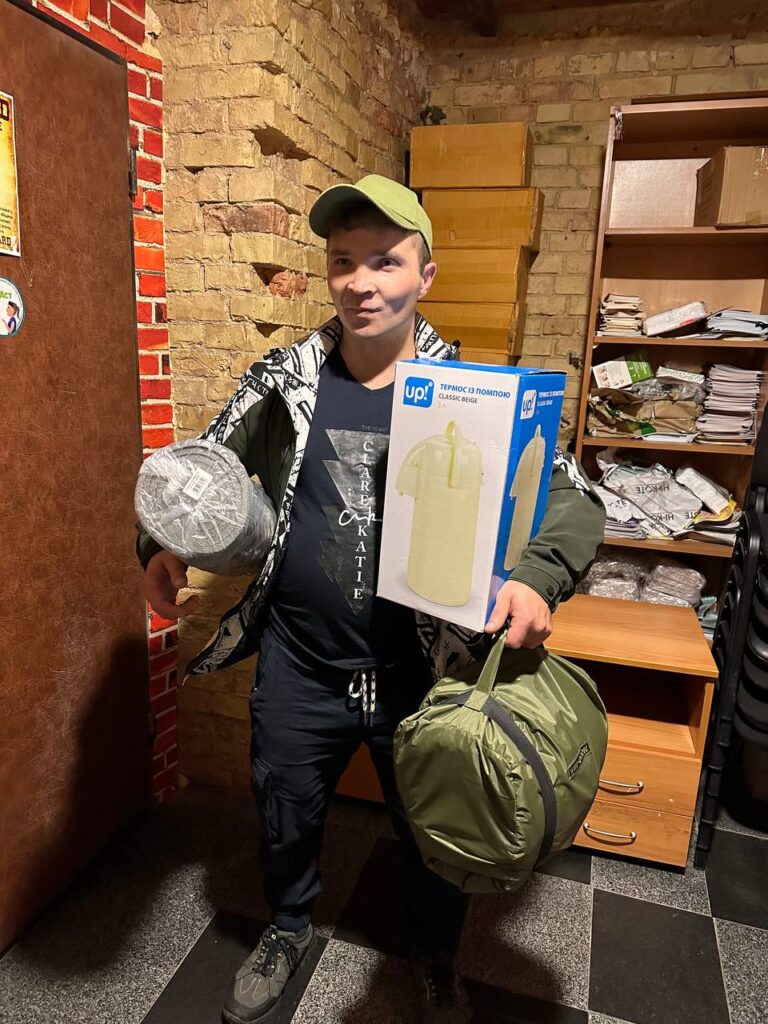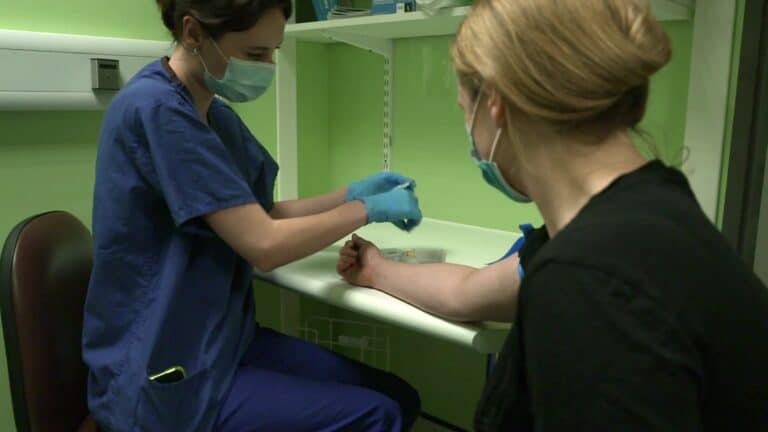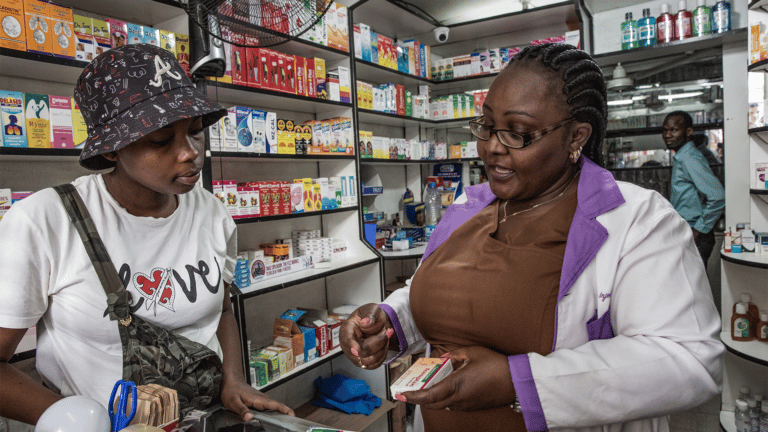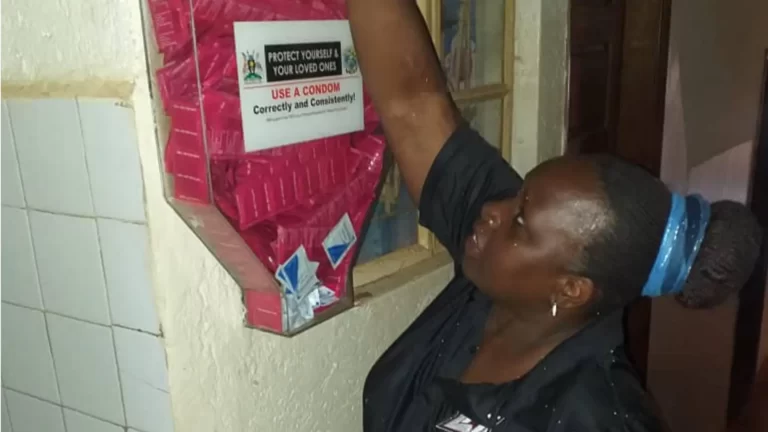Written by Jake Rashbass, Senior Program Lead, Eastern Europe and Central Asia
When I woke up on February 24th 2022, the day Russia launched its full-scale invasion of Ukraine, I realised that everything had changed.
I lead the Elton John AIDS Foundation’s programming in Eastern Europe and Central Asia, the region with the world’s fastest growing HIV epidemic. New HIV transmissions in the region have increased by almost 50% over the past decade and AIDS-related deaths have grown by a third, while declining globally.
But one country in the region has long been defying that trend: Ukraine. Ukraine has seen incredible progress over the past ten years in ending its HIV epidemic, with new transmissions decreasing by half and AIDS-related deaths declining by over 80%. We have been so proud of these gains, having invested millions of dollars in Ukraine over the last 20 years to build systems to ensure that the most vulnerable people in the country have access to the life-saving care they need.
But Russia’s full-scale invasion of Ukraine that fatal day put all of this at risk. That day changed the lives of all Ukrainians, who have met the horrors of this war with incredible courage and resilience. The war has been especially harsh for the estimated 250,000 Ukrainians living with HIV and over 600,000 Ukrainians from communities particularly at risk of HIV. In addition to the deadly danger and mass displacement that all Ukrainians have been facing, the war has also created new barriers threatening access to HIV-related healthcare services.
We knew we had to help, to make sure vulnerable communities received the vital humanitarian aid they needed and to help Ukraine stay on track to end its HIV epidemic.
To make sure every dollar we have sent to Ukraine has the greatest possible impact, we have been guided by the following principles:
- Communities on the ground must be front and centre of everything we do;
- Our resources must add maximum value on top of humanitarian and HIV-related efforts already being funded;
- We must act fast, while making sure funds are used responsibly and without causing harm;
- We must remain flexible and empower our local partners to make operational decisions in real time, to ensure we can adapt to fluctuating needs and possibilities in a rapidly changing environment.
Guided by these principles and working with trusted partners on the ground over the past twelve months, we have mobilised resources towards several key strategic approaches. The first has been to provide life-saving humanitarian aid for vulnerable Ukrainians living with or at risk of HIV.
Immediately after the invasion, dozens of shelters for displaced community members sprung up across the country in existing HIV community centres. The community leaders running these makeshift sanctuaries had premises to operate in and some staff costs covered from their HIV programming, but didn’t have many of the key elements that shelters for displaced people in a conflict setting need – things like beds, blankets, cooking appliances, power banks and heaters.
We realised these were key gaps that needed to be filled – so in the early weeks and months of the war, we supported 44 shelters across 21 cities in 16 regions of Ukraine to acquire the specific vital equipment each of them needed to support people from vulnerable communities with shelter and care.
Our partners say that this equipment has allowed them to turn community centres into “hubs of hope” where people in need have sought not only HIV-related services but also “a place with light, tea, heating, telephone connection and a helping hand”. It also had the added benefit of helping programmes to get HIV services to vulnerable people who had not previously been reached.
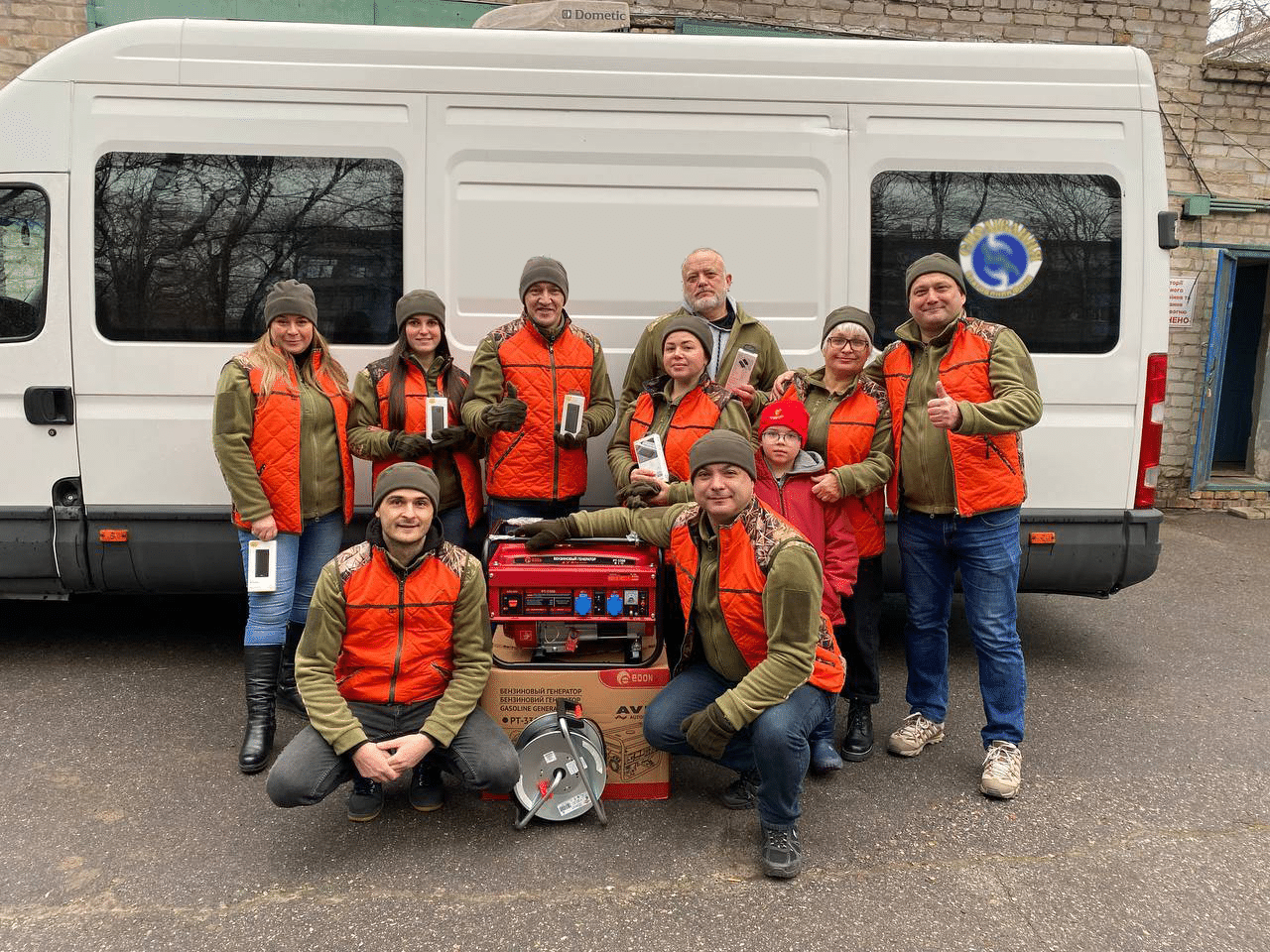
Just providing shelter wasn’t going to be enough, so we also supported assistance like food, hygiene supplies and clothes, as well as resources to aid evacuation and relocation costs for almost 2,000 of the country’s most vulnerable people. This aid included specialised services particularly needed by communities affected by HIV, such as hormone replacement therapy, which we have supported for over 300 transgender Ukrainians.
In addition to assisting Ukrainians who have remained in the country, we wanted to respond to the needs of those who have fled abroad to escape the destruction unleashed by the war. As the leading philanthropic donor for HIV in the region, we have been able to modify our existing programmes in nearby countries that Ukrainians have fled to, to add components that help refugees to continue accessing vital HIV information, prevention, testing and care services.
We have always recognised that mobilising our own resources was never going to be enough. That’s why we have also been working to help community organisations get access to much larger resources available from mainstream humanitarian funds.
There have been many millions of dollars of international humanitarian funding available for Ukrainian non-governmental organisations over the past year. But many community organisations have not been able to meet the bureaucratic requirements for these funds, even if they are able to deliver the right humanitarian services. To address this, we are supporting a capacity development programme to help community organisations access mainstream humanitarian funding. This will allow them to deliver vital humanitarian services more sustainably and at much greater scale than what HIV-related funders alone are able to resource.
Finally, we have been determined to make sure that HIV community organisations do not need to duplicate services that already exist elsewhere. That’s why we are supporting humanitarian assistance coordinators in community organisations across the country to map aid services that are available in their local districts. This enables HIV organisations to refer clients to where they can get the specific help they need, instead of delivering these same services themselves.
As the effects of this war continue to develop, the strategies to meet communities’ needs will also need to change. What will remain constant is our commitment to ensuring that Ukrainians living with and affected by HIV can continue to live with dignity and access the life-saving care they need, and that Ukraine remains on track to end its HIV epidemic.


